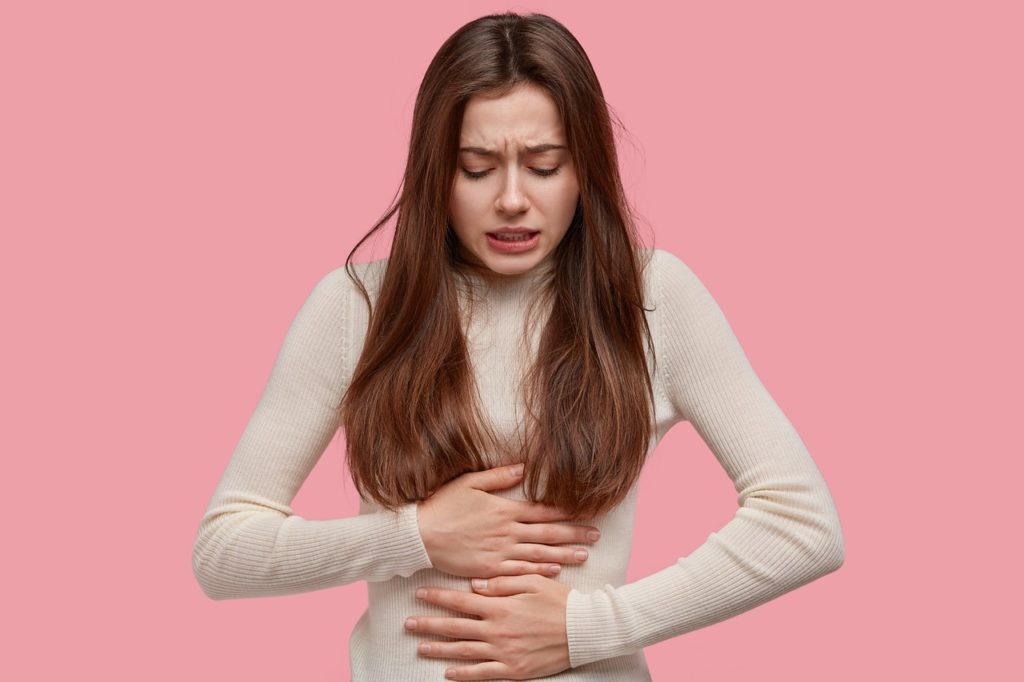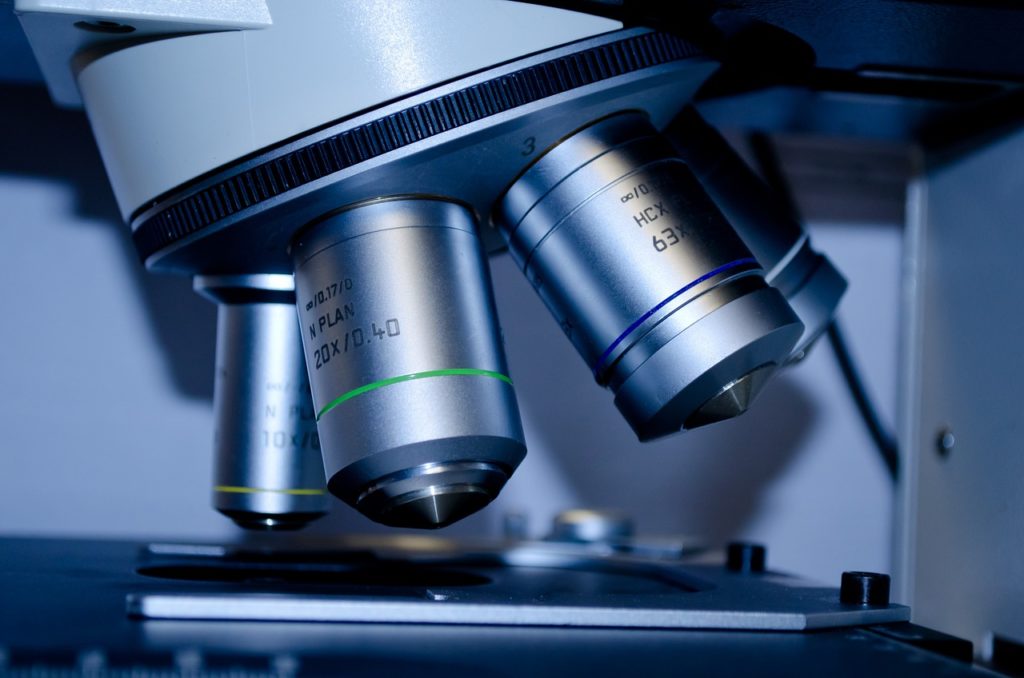One of the telltale indicators of uterine fibroids is heavy periods, but getting the appropriate treatment and figuring out the cause can help.
Do you feel that this is an especially heavy period? An intense period can occasionally just be an intense period. Or it can be a sign of a more severe problem, such as uterine fibroids.
What Are Uterine Fibroids?
Up to 35% of women in their reproductive years develop menorrhagia or heavy menstrual flow. Some people may experience this as a symptom of uterine fibroids, Myomas, or Leiomyomas, noncancerous growths that appear in or near the uterus.
Uterine fibroids frequently occur: The U.S. Department of Health & Human Services estimates that by the time they reach the age of 50, up to 80% of women will have fibroids. Depending on age, race, and family history, uterine fibroids are relatively prevalent.
Uterine fibroids might be completely symptomless for some people. Others may experience a variety of unpleasant symptoms as a result, including:
- Extreme menstrual bleeding.
- Extended and repeated periods.
- Bleeding in between cycles.
- Anemia results from blood loss.

Are Uterine Fibroids Linked To Heavy Menstrual Bleeding?
When menstruation lasts more than eight days and necessitates numerous sanitary product changes, it is considered to be heavy menstrual bleeding. There are a few possibilities, while there isn’t one specific explanation for why uterine fibroids produce heavy, protracted periods.
- The uterine lining may get compressed by uterine fibroids, which can result in more bleeding than usual.
- It’s possible that the uterus won’t contract properly, making it unable to halt the bleeding.
- Blood vessel growth may be accelerated by fibroids, which can result in heavier or more frequent periods and spotting between cycles.
- Heavy bleeding may also be a result of elevated prostaglandin hormone levels.
Heavy menstrual bleeding related to uterine fibroids is typically based on the location of the fibroids. This is due to the fact that the fibroids cause distortion to the lining of a uterus.
Uterine Fibroid Diagnosis
It’s crucial to discuss your heavy periods with your doctor if you’re experiencing them. Although uterine fibroids are prevalent, only approximately 50% of women with them experience excessive bleeding.
Therefore, whether uterine fibroids are the cause or something else, it’s critical to identify the source of your heavy periods. There are numerous reasons for heavy menstrual bleeding, including:
- Adenomyosis
- Endometriosis
- Irregular ovulation
- Miscarriage
- Blood-clotting disorders
- Aspirin and blood thinners
- Non Hormonal intrauterine devices (IUDs)
- Certain types of cancers, such as Ovarian
- Ectopic pregnancy
- Thyroid, liver, or kidney disease
Your doctor will likely conduct a pelvic exam to look for variations in the size or shape of your uterus that could point to the presence of fibroids in order to assess whether your symptoms are brought on by uterine fibroids. Additional exams like an ultrasound or a pelvic MRI could be required to confirm a diagnosis.
You need to locate a doctor who considers everything, including imaging and blood testing as well as your medical and family histories.

Can Fibroids Bleed When You Are Not On Your Period?
Yes, bleeding between periods can be brought on by uterine fibroids. Women typically experience heavy monthly bleeding from uterine fibroids, but the tumors can also cause breakthrough bleeding or irregular menstrual cycles.
Menstrual Bleeds And Uterine Fibroids: Finding The Right Treatment
It’s critical to have treatment if uterine fibroids are the cause of your heavy periods in order to enhance your quality of life.
A lot of bleeding might make you anemic. You might feel worn out, lose your hair, have headaches, have trouble sleeping, feel palpitations, have pica, or have strange appetites. Additionally, anemia can raise your likelihood of requiring intravenous iron or blood transfusions.
Heavy monthly bleeding brought on by uterine fibroids may be treated using the following methods:
- Contraceptive medication
- IUDs that are hormone-based
- Infusions of hormones
- Removal of the fibroids surgically
- Hysterectomy
Personalized attention is given. Work with your doctor to choose the least invasive option to treat your disease based on your age, desire for fertility, the size and location of the fibroids, and other factors.
Do You Need Surgery to Stop Fibroids Bleeding?
Surgery is one method of treating bleeding fibroids, but it is not the only one. Even when bleeding interferes significantly with your life, USA Fibroid Centers offers nonsurgical treatment options that can improve bleeding.
Uterine Fibroid Embolization Is A Good Treatment Option To Start With If You Have A Heavy Flow
With no risks associated with fibroid surgery, uterine fibroid embolization (UFE) can stop bleeding and preserve fertility. A fibroid specialist will use imaging to find the artery supplying the fibroid before performing UFE. To block the blood flow, a small catheter is placed into the thigh or wrist, and embolic materials are injected into the artery. The fibroid can no longer obtain nutrition after the blood flow is interrupted.

Hypoechoic Fibroid – By Meredith
Fibroids are a common condition among women,but not all fibroids are the same. Some are larger, some are smaller, and some have different appearances on ultrasound. One type of fibroid that is especially concerning is the hypoechoic fibroid. What is a Hypoechoic Fibroid? A hypoechoic fibroid is a type of fibroid that appears dark or […]
Fibroids Laparoscopic Surgery – My Journey As Meredith
I am a woman just like any other. I have dreams, aspirations, and a life that I want to live to the fullest. But there was a time when I thought all of that would be taken away from me because of my fibroids. Fibroids are non-cancerous growths that develop in the uterus and can […]
The Long-Term Effects Of Fibroids On Women’s Health And Well-Being
Introduction Fibroids are a common health issue among women, affecting up to 70% of women by the age of 50. These noncancerous growths develop in the uterus and can range in size from small pea-sized masses to larger, grapefruit-sized tumors. While many women with fibroids experience few symptoms, others can suffer from a range of […]
The Different Types Of Fibroids And Their Impact On Fertility
Fibroids are non-cancerous growths that develop within the uterus and can have a significant impact on a woman’s reproductive health. They can vary in size and location, and can impact fertility in different ways. In this article, we’ll explore the different types of fibroids and their impact on fertility. There are three main types of […]

